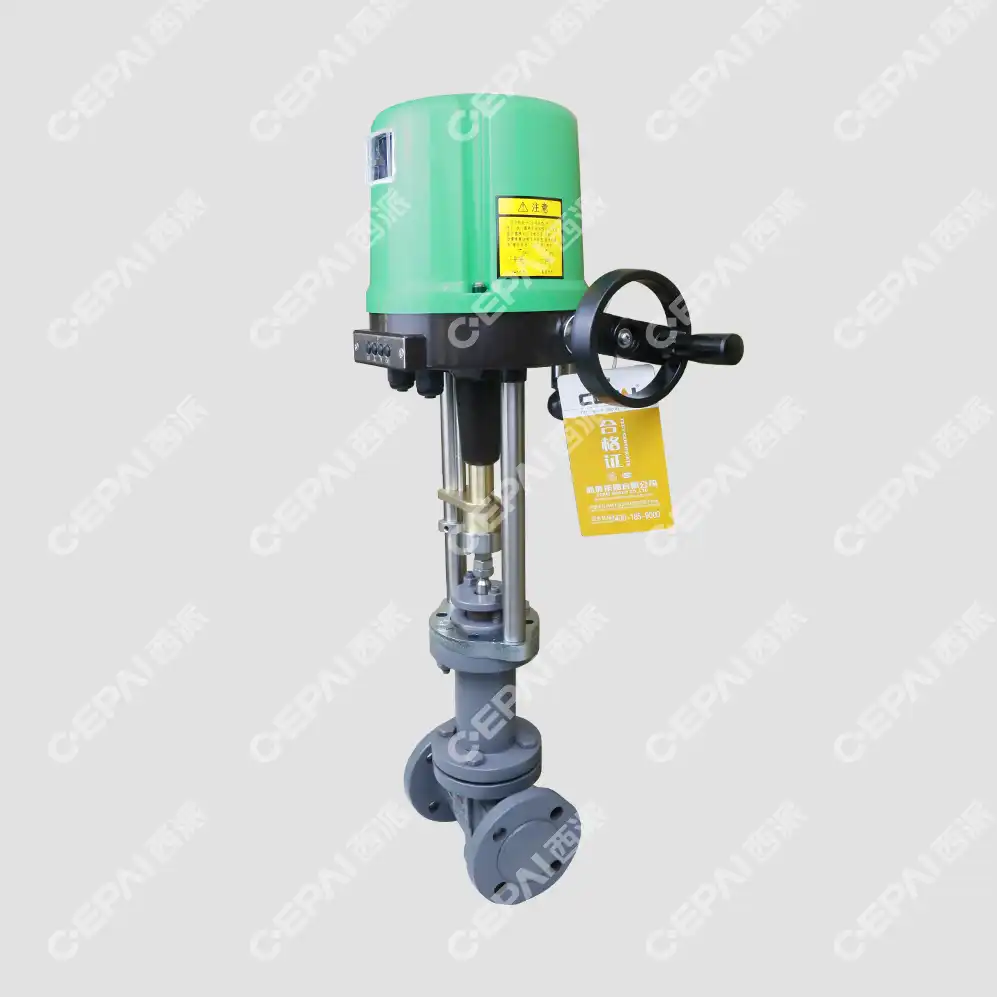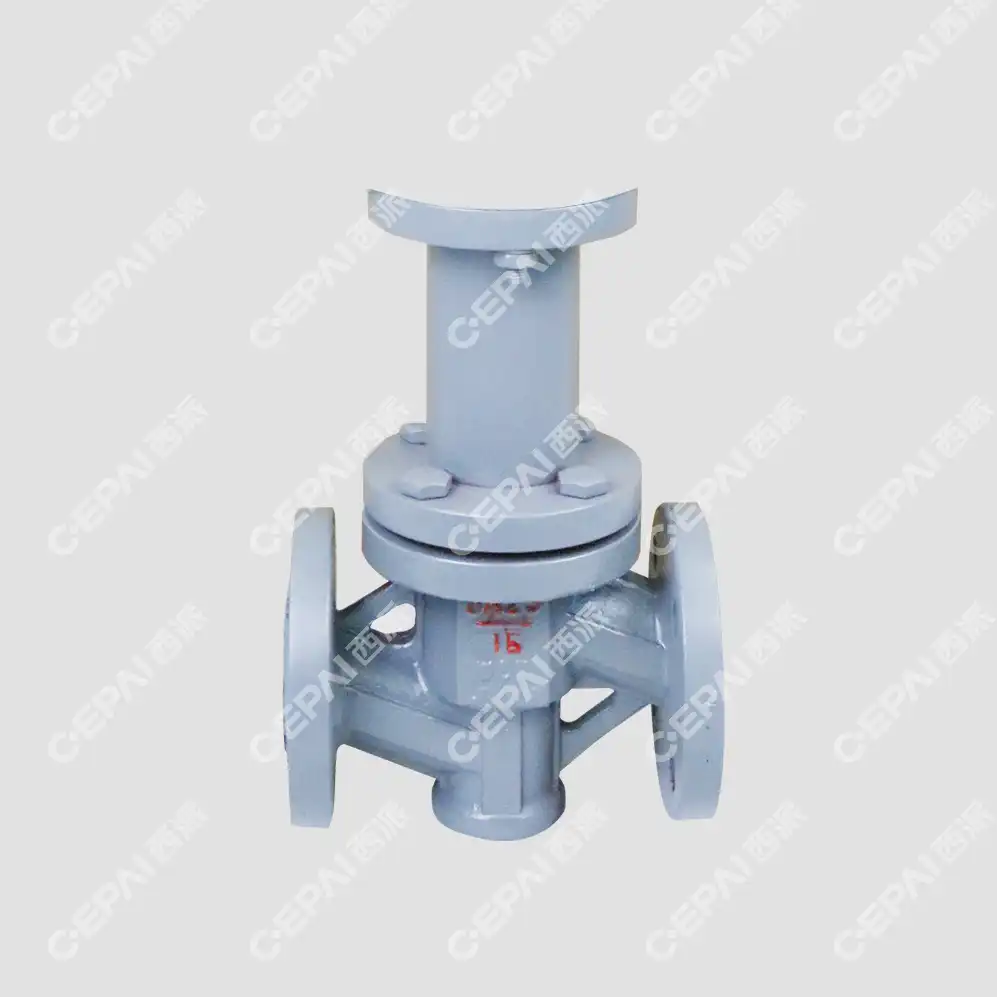What Makes a Control Valve “Corrosion Resistant”? What to Look for Before Buying
When selecting industrial control valves for harsh operating environments, understanding what truly makes a Corrosion-Resistant Control Valve effective is crucial for long-term operational success. Corrosion resistance in control valves stems from advanced material selection, specialized surface treatments, and precision engineering that prevents chemical degradation, extends service life, and maintains optimal performance under aggressive conditions. Key factors include the use of high-grade stainless steels, exotic alloys, protective coatings, and sophisticated sealing technologies that create barriers against corrosive media while ensuring reliable flow control and system integrity in demanding industrial applications.

Essential Material Properties for Maximum Corrosion Protection
Stainless Steel Grades and Their Corrosion Resistance Capabilities
The foundation of any reliable Corrosion-Resistant Control Valve lies in the careful selection of stainless steel grades that offer superior resistance to various corrosive environments. Austenitic stainless steels, particularly grades 316 and 316L, provide excellent corrosion resistance due to their high chromium and nickel content, with molybdenum additions enhancing their performance against chloride-induced pitting and crevice corrosion. These materials form a passive oxide layer that self-heals when damaged, providing continuous protection against oxidation and chemical attack. The low carbon content in 316L grades further improves weldability and reduces carbide precipitation, making them ideal for applications involving organic acids, pharmaceuticals, and food processing industries. Super austenitic grades like 254 SMO and AL-6XN offer even greater corrosion resistance through increased molybdenum and nitrogen content, enabling reliable operation in severe marine environments, pulp and paper processing, and chemical manufacturing where standard stainless steels would fail.
Exotic Alloy Applications in Demanding Industrial Environments
Beyond traditional stainless steels, Corrosion-Resistant Control Valve applications often require exotic alloys specifically engineered for extreme corrosion resistance. Hastelloy C-276 and Inconel 625 represent premium choices for applications involving strong acids, high temperatures, and oxidizing/reducing environments simultaneously. These nickel-based superalloys maintain their mechanical properties and corrosion resistance at elevated temperatures while resisting stress corrosion cracking and hydrogen embrittlement. Duplex and super duplex stainless steels, combining austenitic and ferritic microstructures, offer exceptional strength and chloride stress corrosion cracking resistance, making them ideal for offshore oil and gas applications, desalination plants, and chemical processing equipment. The selection of appropriate exotic alloys requires careful consideration of specific corrosive media, operating temperatures, pressure conditions, and mechanical stress levels to ensure optimal performance and cost-effectiveness over the valve's operational lifetime.
Advanced Coating Technologies and Surface Protection Methods
Modern Corrosion-Resistant Control Valve designs incorporate sophisticated coating technologies that provide additional layers of protection beyond base material properties. Physical vapor deposition (PVD) and chemical vapor deposition (CVD) processes create ultra-thin, dense protective films of materials like titanium nitride, chromium nitride, and diamond-like carbon that offer exceptional hardness and chemical inertness. Thermal spray coatings, including high-velocity oxygen fuel (HVOF) applications of tungsten carbide and chromium carbide, provide wear and corrosion resistance for valve components subjected to abrasive and erosive conditions. Electroless nickel plating with PTFE co-deposition creates self-lubricating surfaces that resist both corrosion and fouling, particularly beneficial in applications involving sticky or polymerizing media. These advanced surface treatments can be applied selectively to critical wear areas, sealing surfaces, and flow passages, maximizing protection while maintaining dimensional accuracy and surface finish requirements essential for precise flow control performance.
Critical Design Features That Enhance Corrosion Resistance
Seal Technology and Material Compatibility Considerations
The sealing system represents one of the most critical aspects of Corrosion-Resistant Control Valve design, as even minor seal failures can lead to catastrophic corrosion damage and system contamination. Advanced elastomeric seals utilizing perfluoroelastomers (FFKM) like Kalrez and Chemraz offer exceptional chemical compatibility across broad temperature ranges while maintaining sealing integrity in aggressive chemical environments. These materials resist swelling, hardening, and degradation when exposed to strong acids, bases, solvents, and steam, ensuring long-term sealing performance without frequent maintenance interventions. Metal-to-metal sealing systems, incorporating fire-safe designs with graphite or flexible metal gaskets, provide reliable sealing in high-temperature applications where elastomeric seals would fail. The careful selection of seal materials requires comprehensive compatibility testing with specific process media, considering not only chemical resistance but also temperature cycling, pressure variations, and potential contamination from seal degradation products that could affect downstream processes or equipment.
Precision Machining and Surface Finish Requirements
Manufacturing precision plays a crucial role in the corrosion resistance of control valves, as surface irregularities, crevices, and poor finish quality can create initiation sites for localized corrosion attack. Corrosion-Resistant Control Valve components require precise machining tolerances and superior surface finishes, typically Ra 0.8 μm or better on sealing surfaces, to minimize crevice corrosion and facilitate proper cleaning and decontamination procedures. Advanced manufacturing techniques including 5-axis CNC machining, electrical discharge machining (EDM), and precision grinding ensure dimensional accuracy while minimizing surface defects that could compromise corrosion resistance. Electropolishing treatments remove surface contaminants, level microscopic peaks and valleys, and enhance the passive oxide layer formation, significantly improving corrosion resistance and cleanability. The manufacturing process must also eliminate contamination from cutting fluids, grinding compounds, and handling procedures that could introduce corrosion-promoting substances or compromise surface integrity during production and assembly operations.
Flow Path Design and Velocity Considerations
The internal flow path design of a Corrosion-Resistant Control Valve significantly influences its susceptibility to erosion-corrosion, cavitation damage, and flow-induced vibration that can accelerate corrosion processes. Streamlined flow paths with gradual transitions, optimized pressure recovery characteristics, and carefully designed trim geometries minimize turbulence, velocity variations, and pressure drops that contribute to erosive wear and cavitation. Multi-stage pressure reduction designs distribute pressure drops across multiple restrictions, reducing the likelihood of cavitation while maintaining precise flow control capabilities. The selection of appropriate flow coefficients (Cv) and rangeability ensures operation within optimal flow velocity ranges, typically maintaining velocities below critical erosion thresholds while providing adequate turndown ratios for process control requirements. Computational fluid dynamics (CFD) analysis during the design phase helps optimize flow patterns, identify potential problem areas, and validate performance predictions before manufacturing, ensuring that flow-related corrosion mechanisms are minimized through intelligent design rather than material selection alone.
Quality Testing and Certification Standards for Reliable Performance
International Standards and Compliance Requirements
Ensuring the reliability and performance of Corrosion-Resistant Control Valve systems requires adherence to rigorous international standards and certification protocols that validate design, materials, manufacturing, and testing procedures. API 6D and API 602 standards establish fundamental requirements for valve design, materials, manufacturing, testing, and documentation, while ISO 15848 series standards address fugitive emissions testing and sealing performance under various operating conditions. NACE MR0175/ISO 15156 standards specifically address materials selection and qualification procedures for sour service applications containing hydrogen sulfide, ensuring that materials maintain their mechanical properties and corrosion resistance under these aggressive conditions. ASME B16.34 provides pressure-temperature ratings and design criteria, while ISA standards cover control valve sizing, installation, and maintenance procedures. Compliance with these standards ensures that valves meet industry-recognized performance criteria and can be safely integrated into critical process systems with confidence in their long-term reliability and safety performance.
Advanced Testing Methodologies and Quality Assurance Protocols
Modern Corrosion-Resistant Control Valve manufacturing incorporates sophisticated testing methodologies that validate corrosion resistance, mechanical properties, and functional performance under simulated service conditions. Electrochemical testing techniques including potentiodynamic polarization, electrochemical impedance spectroscopy, and critical pitting temperature determination provide quantitative measures of corrosion resistance and help optimize material selection for specific applications. Salt spray testing (ASTM B117), cyclic corrosion testing, and immersion testing in actual process media validate long-term corrosion performance under accelerated conditions. Non-destructive testing methods including radiographic inspection, ultrasonic testing, magnetic particle inspection, and dye penetrant testing ensure the integrity of castings, forgings, and welded assemblies without compromising component serviceability. Mechanical testing encompasses tensile testing, impact testing, hardness measurement, and fracture toughness evaluation to verify that materials meet specified requirements and maintain their properties after exposure to corrosive environments.

Performance Validation Through Real-World Application Data
The ultimate validation of Corrosion-Resistant Control Valve performance comes through comprehensive field testing and long-term service experience in actual industrial applications. Performance monitoring systems track key parameters including seal leakage rates, actuator performance, flow characteristics, and maintenance requirements over extended service periods. Predictive maintenance technologies utilizing vibration analysis, acoustic emission monitoring, and thermal imaging help identify developing problems before they result in failures, providing valuable data on valve condition and remaining service life. Field failure analysis and root cause investigation of returned components provide insights into actual service conditions, corrosion mechanisms, and performance limitations that may not be apparent during laboratory testing. This real-world performance data is fed back into the design and manufacturing process, enabling continuous improvement in materials selection, design optimization, and quality control procedures that enhance the reliability and service life of future valve products.
Conclusion
Selecting the right Corrosion-Resistant Control Valve requires comprehensive understanding of material properties, design features, and quality standards that ensure reliable performance in demanding industrial environments. The combination of advanced materials, precision manufacturing, and rigorous testing protocols creates valves capable of withstanding aggressive corrosive conditions while maintaining precise flow control capabilities. Success depends on matching specific valve characteristics to application requirements, considering factors beyond basic corrosion resistance to include mechanical properties, sealing performance, and long-term reliability under actual service conditions.
Ready to specify the perfect Corrosion-Resistant Control Valve for your critical applications? As a leading China Corrosion-Resistant Control Valve factory and China Corrosion-Resistant Control Valve supplier, CEPAI Group combines advanced manufacturing capabilities with extensive engineering expertise to deliver superior valve solutions. Our position as a premier China Corrosion-Resistant Control Valve manufacturer enables us to offer competitive Corrosion-Resistant Control Valve wholesale pricing while maintaining the highest quality standards. Whether you need standard products or custom solutions, our Corrosion-Resistant Control Valve for sale options are backed by comprehensive technical support and competitive Corrosion-Resistant Control Valve price structures. Contact us today at cepai@cepai.com to discuss your specific requirements and request a detailed Corrosion-Resistant Control Valve brochure featuring our complete product range and technical specifications.
References
1. Davis, J.R. "Corrosion of Weldments in Stainless Steel Control Valves." Materials Engineering and Performance, vol. 28, no. 4, 2019, pp. 2156-2167.
2. Martinez, C.L., and Thompson, R.K. "Advanced Alloy Selection for Severe Service Control Valve Applications." Industrial Valve Technology Quarterly, vol. 15, no. 2, 2020, pp. 45-62.
3. Anderson, P.M., et al. "Surface Treatment Technologies for Enhanced Corrosion Resistance in Process Control Equipment." Journal of Materials Protection and Performance, vol. 31, no. 8, 2021, pp. 3421-3438.
4. Wilson, S.A., and Chen, L.Y. "Seal Technology Advancements in Corrosion-Resistant Control Valve Design." Process Industries Maintenance and Reliability, vol. 22, no. 6, 2022, pp. 178-195.
_1745994790767.webp)
Get professional pre-sales technical consultation and valve selection services, customized solution services.

About CEPAI


